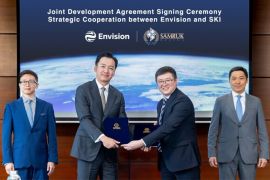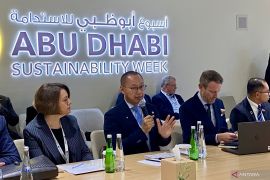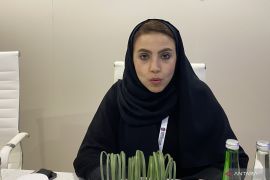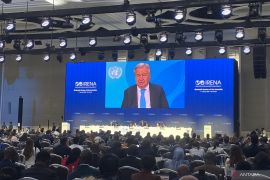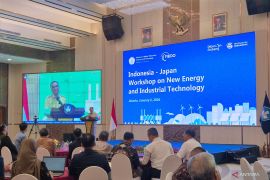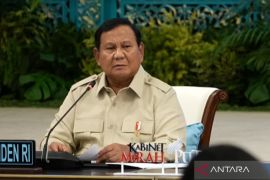Regarding access to the use and utilization of technology, it must be made more inclusive. Therefore, access to technology and affordable financing must be explored massively.Jakarta (ANTARA) - Energy and Mineral Resources Minister Arifin Tasrif has emphasized the importance of developing new and renewable energy (EBT) for reducing greenhouse gas emissions in the energy sector and realizing net-zero emissions by 2060.
"At the COP26 in 2021, Indonesia is committed to reducing greenhouse gas emissions, which (the commitment) emphasized that Indonesia will achieve net-zero emissions by 2060 or sooner. For this reason, efforts are needed to mitigate climate change by reducing carbon emissions (decarbonization) while maintaining national energy security," Tasrif said, according to information posted on the Ministry of Energy and Mineral Resources’ website in Jakarta on Thursday.
Minister Tasrif delivered the statement at the 8th Indonesia International Geothermal Convention & Exhibition (IIGCE) 2022 in Jakarta on Wednesday (September 14, 2022).
One mitigation measure that can play the most significant role in reducing greenhouse gas emissions in the energy sector is the development of EBT as a transition step towards cleaner, lower emission, and environmentally friendly energy.
Minister Tasrif revealed that Indonesia has abundant renewable energy potential of around 3 thousand GW, with its geothermal potential pegged at 24 GW.
Over the past five years, the capacity of new and renewable energy power plants has continued to be augmented, and it is currently recorded at 12 GW, with geothermal energy contributing 2.2 GW.
"The potential of new and renewable energy will be utilized as much as possible to accelerate the energy transition. In 2060, the target of power generation capacity of new and renewable energy is 700 GW from solar, hydro, wind, bioenergy, marine, geothermal, including hydrogen and nuclear," he informed.
Related news: Only 0.3% of Indonesia's new, renewable energy potential utilized
Geothermal power generation is estimated to reach 22 GW, driven by new business schemes and technological innovations that are competitive and affordable, including deep drilling geothermal development, enhanced geothermal systems, and offshore geothermal development.
To accelerate and expand the use of geothermal energy as an energy source, the government has re-imposed tariffs on geothermal steam and electricity and proposed an easier process for permitting land use in conservation forests as well as provided exemption from land and building taxes, Tasrif said.
According to the minister, increasing and accelerating clean energy development requires a variety of technologies and financial support from various entities, including governments, international organizations, financial institutions, businesses, and philanthropy.
"Regarding access to the use and utilization of technology, it must be made more inclusive. Therefore, access to technology and affordable financing must be explored massively," he said.
Currently, in Indonesia, there are two financing schemes for geothermal development, namely the Geothermal Energy Upstream Development Project and the Geothermal Resource Risk Mitigation, which is being undertaken in collaboration with the Ministry of Finance, PT SMI, and the World Bank.
Related news: Need strong ecosystem to support energy transition: BRIN
According to president of the Indonesian Geothermal Association (API), Prijandaru Effendi, geothermal could be a clean alternative and transitional energy source.
"Geothermal is a clean, reliable, and sustainable energy source, which, if developed and managed properly, can be one of the important solutions in the national energy transition to support future energy security," he said.
According to him, API will continue to push geothermal energy as the main energy source for ensuring the sustainability of national development for the realization of national energy independence and contributing to Indonesia's commitment to the Paris Agreement, which has been ratified by Law No. 16 of 2016.
Effendi emphasized that API is committed to increasing the use of geothermal energy as an energy source to 7.2 GW by 2025, 10 GW by 2030, and 17 GW by 2050, in accordance with the General National Energy Plan (RUEN).
"Achieving geothermal utilization according to the target (set) in RUEN will not be easy, it will require hard work and a concrete and realistic acceleration program. In this regard, API will help achieve these targets, but we will also need full support from the government so that the problems and challenges that exist today can be resolved soon," he said. .
Related news: Ministry continues community-based new, renewable energy development
Related news: Govt needs private investment to achieve energy transition target: BI
Translator: Kelik D, Azis Kurmala
Editor: Suharto
Copyright © ANTARA 2022


